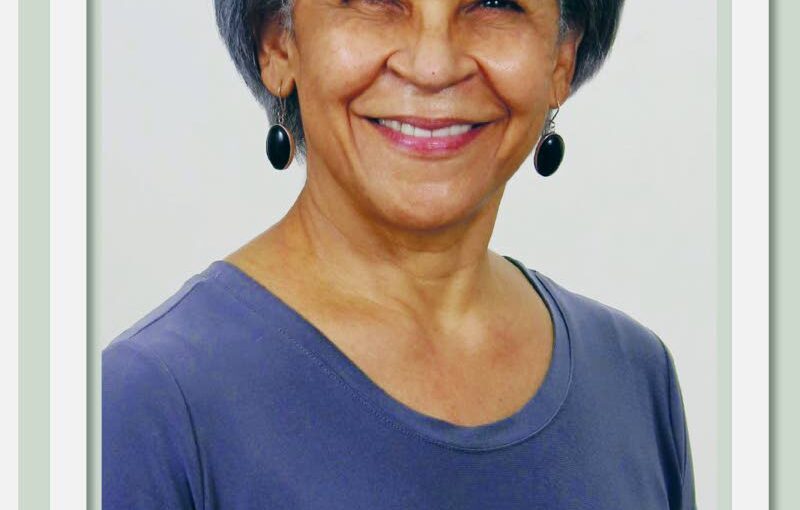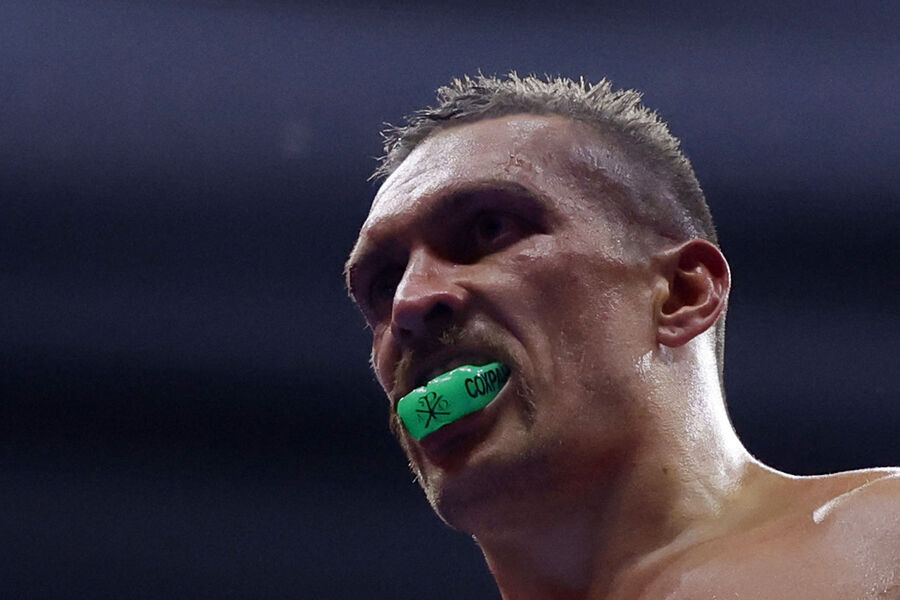THE life of Sir Shridath Ramphal, GCMG, AC, ONZ, OE, OCC, NIIV, OM, KC, FRSA, who gently passed away on August 30, aged 95, in Barbados, cannot go...
Vous n'êtes pas connecté
- English
- Français
- عربي
- Español
- Deutsch
- Português
- русский язык
- Català
- Italiano
- Nederlands, Vlaams
- Norsk
- فارسی
- বাংলা
- اردو
- Azərbaycan dili
- Bahasa Indonesia
- Հայերեն
- Ελληνικά
- Bosanski jezik
- українська мова
- Íslenska
- Türkmen, Түркмен
- Türkçe
- Shqip
- Eesti keel
- magyar
- Қазақ тілі
- Kalaallisut ; kalaallit oqaasii
- Lietuvių kalba
- Latviešu valoda
- македонски јазик
- Монгол
- Bahasa Melayu ; بهاس ملايو
- ဗမာစာ
- Slovenščina
- тоҷикӣ ; toğikī ; تاجیکی
- ไทย
- O'zbek ; Ўзбек ; أۇزبېك
- Tiếng Việt
- ភាសាខ្មែរ
- རྫོང་ཁ
- Soomaaliga ; af Soomaali
Rubriques :
 Maroc - EURASIAREVIEW.COM - A la une - 23/Aug 11:25
Maroc - EURASIAREVIEW.COM - A la une - 23/Aug 11:25
Two Polish Heroes Every American Should Know – OpEd
By Lawrence W. Reed As a sixth grader some 60 years ago, I learned that two Polish heroes played prominent roles in the struggle to secure American independence from Great Britain—Casimir Pulaski and Thaddeus Kosciuszko. What they did for America left a deep impression on me and began a lifelong appreciation for Poland and things Polish. As a successful commander against invading Russian forces, Pulaski, one of only eight people ever to receive honorary U.S. citizenship, was a hero in his native land (then known as thePolish-Lithuanian Commonwealth) before he came to America in 1777 at the age of 32. Pulaski told George Washington, whose life he later saved on the battlefield, “I came here, where freedom is being defended, to serve it, and to live or die for it.” By the time he was killed in action two years later near Savannah, Georgia, he had earned the rank of brigadier general in the Continental Army. Pulaski became “the Father of the American Cavalry” and is buried near Savannah, not far from an 18th-century fort that bears his name. All over America you can find highways, townships, towns and villages, schools, bridges, and monuments monikered in his memory. Thaddeus Kosciuszko, however, is my focus in this essay. Born in 1746, a few months after Pulaski, Kosciuszko came to America for the same reason, to fight for liberty. He distinguished himself as a master engineer of fortifications and, like Pulaski, also earned the rank of brigadier general. His work proved indispensable to the American victory at Saratoga and in the successful defense of West Point. Later dispatched to the South, he is credited with valuable service in the Carolinas, including the reoccupation of Charleston after the British retreat. He endured seven years of fighting for America without pay, until Congress finally found the money to compensate him and other Continental Army soldiers, meager though it was. But it is for another venture that I write about Kosciuszko here. Over eight months from March to November 1794—exactly 230 years ago—he led a courageous insurrection in his native Poland against the Russians. Insurrectionis a loaded term these days, laden with offensive connotations. But in Poland all these years later, the so-called “Kosciuszko Insurrection” is celebrated as a heroic moment. Context is important. This one was much more than a crowd out of control; it was composed of armed men seeking a violent overthrow of a foreign occupier. The Polish-Lithuanian Commonwealth in the early 1790s was a nation under siege by three powerful neighbors: Austria-Hungary, Prussia, and most importantly, Russia. Those three adjoining nations had long vexed the Poles—grabbing land, bribing Polish politicians, and isolating the country diplomatically. After his valiant efforts on behalf of the freedom of America, he returned to Europe to fight for the freedom of his beloved Poland. When the Russians invaded the Polish-Lithuanian Commonwealth in 1792, Kosciuszko sprang into action. Rising to the rank of lieutenant general, he fought the Russians and never lost a battle. But in an act judged misguided at best and cowardly at worst, King Stanisław Poniatowski stunned the nation by ordering a cessation of hostilities against the Russians. The King’s surrender opened the door to Russian occupation, and in disgust, Kosciuszko left the country to begin planning a revolution against the Russian usurpers. The King thought he had struck a deal with the Russians that would leave Polish borders intact. That was naïve. If you wonder why Poles today distrust, even despise, the regime then in St. Petersburg and now in Moscow, this is one of many good reasons. In January 1793, Russia and Prussia signed an agreement that produced a second partition of the Polish-Lithuanian Commonwealth (the first being in 1772) that shrunk the country further. The patriot in Kosciuszko wouldn’t allow for acceptance of these circumstances. Working with other Polish emigres in Europe, he plotted to liberate occupied Poland. Under threat of arrest and execution, he made his way back to the country, and in the main square of Krakow on March 24, 1794, he daringly announced what would quickly become known as the Kosciuszko Insurrection. He was now commander-in-chief of Polish-Lithuanian forces opposing the forces of Catherine the Great’s autocratic Russia. Kosciuszko’s forces fought valiantly in every corner of the country. Two months in, he issued the Polaniec Manifesto. It granted the people substantial civil liberties and a partial end to serfdom, private ownership of land, and certain legal rights previously unknown to ordinary people. Though the Manifesto rallied the peasantry to support the cause of the insurrection, it was ultimately to little avail. The old nobility resisted it, and by November, the Polish-Lithuanian Commonwealth succumbed to the overwhelming numbers of the Russian enemy. Kosciuszko’s effort failed. The Commonwealth was snuffed out by the third and final partition of the country in 1795. For the next 123 years, the map of Europe showed no Poland and no Lithuania. In the part of the old Commonwealth won at gunpoint by the Russians, a kind of ethnic cleansing took place. The occupiers sought to erase Polish culture and heritage, but brave Poles continued to resist as they created one of the most innovative underground societies in the world. Even the famous Polish Nobel laureate and physicist Maria Sklodowska (Marie Curie) would earn her undergraduate degree in an illegal, underground university. With the conclusion of World War I in 1918, Poland and Lithuania would both emerge again on the map. And the first thing a revived Polish nation faced was an attack by Lenin’s Bolshevik Russia. Undoubtedly emboldened by Kosciuszko’s example of so many decades before, Polesclobbered the Russiansand saved Europe from a communist assault. As for Kosciuszko himself: After the Russian victory in 1795, he emigrated to America again. He enjoyed a long friendship with many American patriots, including Thomas Jefferson. He wrote his will in 1798 and bequeathed much of his estate to the freedom and education of black slaves in the U.S. He died in Switzerland in 1817, at age 71. And now you know yet another reason why, though I have no Polish blood in me,I love Poland! About the author: Lawrence W. Reed is FEE's President Emeritus, having previously served for nearly 11 years as FEE’s president (2008-2019). He is also FEE's Humphreys Family Senior Fellow and Ron Manners Global Ambassador for Liberty. His Facebook page is here and his personal website is lawrencewreed.com. Source: This article was published at FEE
Articles similaires
'Trump really does commit crimes': HBO's Maher cuts off conservative's whine about trials
On the Friday night HBO "Real Time Overtime" segment posted to YouTube, host Bill Maher finally had enough of conservative Rich Lowry's complaining...
'Trump really does commit crimes': HBO's Maher cuts off conservative's whine about trials
On the Friday night HBO "Real Time Overtime" segment posted to YouTube, host Bill Maher finally had enough of conservative Rich Lowry's complaining...
Reason for Ukrainian boxer Usyk’s detention in Poland revealed 00:25
Polish police detained Ukrainian boxer Alexander Usyk at Krakow airport for speeding, Elitexpert reports. The source of the publication explained that...
Writer hits at Clarence Thomas as 'penance' for smearing sex harassment accuser years ago
Political operative David Brock helped lead the smear campaign against Clarence Thomas' sexual harassment accuser Anita Hill — and he said he's...
Foreign nationals are tricked into fighting for Russia on the Ukrainian front
In India's Telangana, a man is desperately trying to get his brother back from the frontline of Russian forces in Ukraine after he was tricked into...
Cybercrime Suspect Evades Arrest for 15 Years
When the U.S. State Department recently offered a reward of up to $2.5 million for information leading to the arrest of suspected cybercriminal...
Cybercrime Suspect Evades Arrest for 15 Years
When the U.S. State Department recently offered a reward of up to $2.5 million for information leading to the arrest of suspected cybercriminal...
Indonesian President-Elect Prabowo Subianto’s Visit To Moscow: Laying Groundwork For Enhanced Ties With Russia – Analysis
By Ian Storey On 31 July Prabowo Subianto, Indonesia’s current defence minister and president-elect, paid a working visit to Russia.[1] The...
Commonwealth Master’s Scholarships 2025/2026 for full-time Master’s study at a UK university (Fully Funded)
Applications for Commonwealth Master’s scholarships for the 2025/26 academic year are now open. The agency-nominated Master’s programme is one of...
Les derniers communiqués
-
Adobe Brings Conversational AI to Trillions of PDFs with the New AI Assistant in Reader and Acrobat
Adobe - 21/02/2024
-
Laura Frigenti takes the Helm as Chief Executive Officer of the Global Partnership for Education
Global Partnership for Education - 05/12/2022



